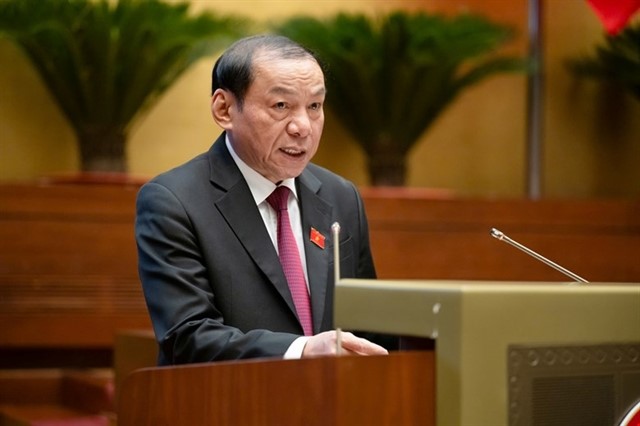Key provisions focus on transparent advertising practices, mandating influencers to disclose paid promotions and only endorse products they have personally used.

The draft law to amend and supplement several articles of the Advertising Law has introduced new provisions to tighten online advertising regulations, including responsibilities for influencers.
On November 8, continuing the agenda of the 8th session, Minister of Culture, Sports and Tourism Nguyễn Văn Hùng, authorised by the Prime Minister, presented the proposal for the Advertising Law amendment project to the National Assembly.
Minister Nguyễn Văn Hùng stressed the importance of this law in addressing regulatory gaps and keeping up with developments in digital and cross-border advertising. These amendments aim to implement key decisions from the Party’s XIII National Congress and align with other state policies regarding culture, creative industries, and legal development.
Key areas of focus include managing advertising on online platforms, cross-border services, and out-of-home advertising. Updates include provisions that ensure advertising content is clear, truthful, and accurate, without misleading consumers regarding the product's function, quality, or use. Any disclaimers must be presented clearly and accessible.
The draft law also includes specific responsibilities for influencers engaged in advertising, per consumer protection laws. Influencers must notify consumers that they are advertising and should only share opinions about products like cosmetics, health supplements, and food supplements if they have personally used the product.
Further, the law covers online advertising, establishing obligations for advertisers, advertising service providers, and online publishers, including requirements for domestic and cross-border advertising providers to register contact information, technical controls to remove unlawful ads, and regular reporting for online advertisers.
Additionally, the law defines the responsibilities of influencers in advertisements. However, the 15a provision lacks a clear distinction between influencer responsibilities and those of other advertisers, leading to gaps in applicability. To address this, the drafting committee was urged to create specific criteria and reporting mechanisms for influencers, especially when they post about personal experiences with products.
The proposal includes updated regulations on online advertisements, noting alignment with relevant laws to ensure a comprehensive legal framework for all parties involved. Additionally, the proposal suggests an increased ad viewing time from 1.5 seconds to 6 seconds, though it needs further impact assessment to validate this increase.
Lastly, there are currently no regulations for advertisements containing links to personal profiles or mobile applications. The committee is encouraged to consider such provisions. — VNS
- Tags
- Advertising Law





